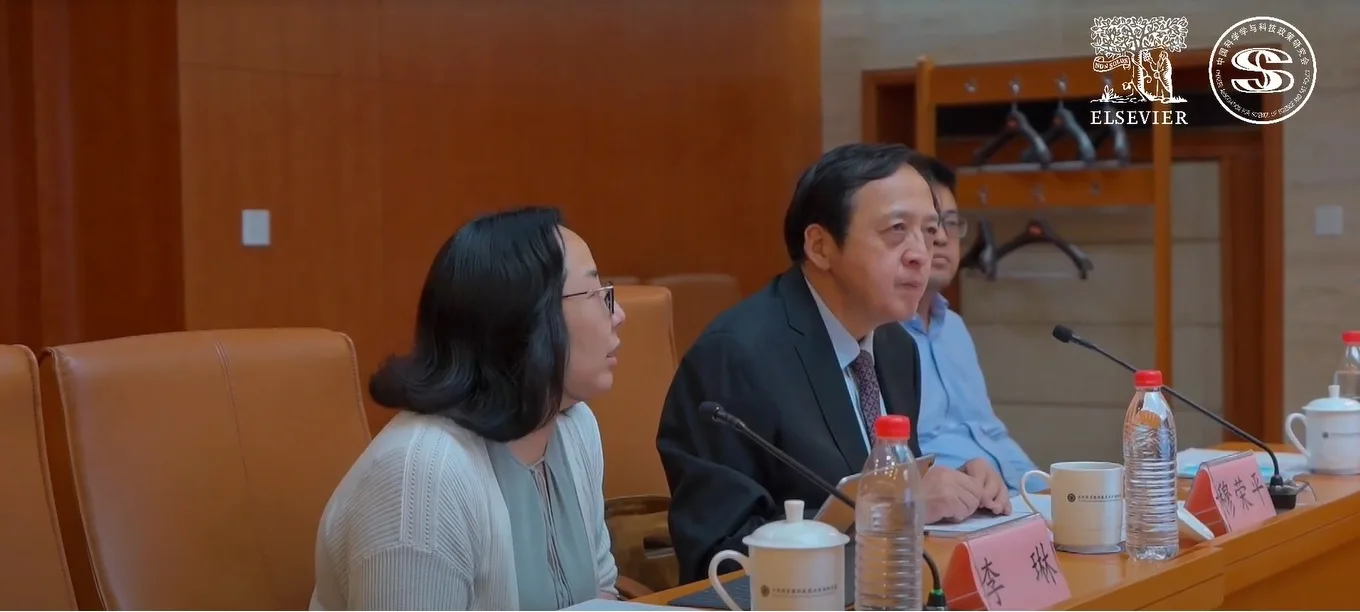Confidence in Research: China roundtable
The Confidence in Research: China roundtable explored the challenges and opportunities in building public trust and empowering researchers.
Key points:
Transparency matters: Open, shared, and timely data is essential for public trust in science.
Demystifying research: Scientists must communicate their work's impact in relatable ways to bridge the gap with the public.
Empowering researchers: Boosting confidence and communication skills among Chinese researchers is a priority.
The bottom line: Building trust in science requires transparent data, relatable communication, and empowering researchers to connect with society.
Confidence in Research: China roundtable

Watch now
|
Confidence in Research: China roundtable
Video transcript
Prof. Luo Huiqian, Institute of Physics, Chinese Academy of Sciences: "When I first graduated and started working, I was not a confident person. At the time, I felt that my academic achievements were not impressive, and my English proficiency was not good enough. I lacked confidence in pursuing research. However, by a surprising coincidence, my teacher asked me if I would like to stay at our institute and work on a new project with another teacher. This project involved using neutron technology. I agreed, and it was a significant challenge for me. My confidence began to build from that point. To conduct this research, I needed to go abroad to carry out neutron experiments. I had to travel alone to a non-English-speaking country and communicate with local scientists. Through various experiments, I gradually developed academic confidence. This confidence was crucial for my research development."
Prof. Chein Bin, School of Environment, Beijing Normal University: "I believe that scientific knowledge is particularly important for the public. The public has high expectations for the authenticity, accuracy, and timeliness of scientific knowledge. As researchers, we must pay attention to improving these aspects. Scientific achievements require data sources that are open, transparent, and shareable. People should also understand the mechanisms behind the data. Additionally, there is a need for timely dissemination of information so that the public can access it quickly. This builds confidence in the authenticity of scientific knowledge."
Prof. Luo Huiqian: "Introducing our scientific achievements to the public is both a duty and a responsibility. When we share our research with the public, it helps them understand science better and demystifies scientists. The public will realize that the advancements in our daily lives are brought about by scientific development. They will also understand that scientists are not just spending money on meaningless things. Instead, we are focused on meaningful endeavors. By helping the public learn more about us, we can gain their support in the future."
Prof. Hu Xiaoyu, School of Medicine, Tsinghua University: "The challenges are significant. The main issue lies in the difference between the professional expertise of researchers and the public's understanding of science. Professional researchers view scientific problems from a rigorous, objective, and emotionless perspective due to years of training. However, the public often approaches these issues with some degree of personal emotion. The biggest challenge is how to use language that the public can understand to objectively and fairly interpret professional scientific issues and conclusions."
Ni Sijie, S&T Reporter, China Science Daily: "The issue of public trust in science is not only a topic of interest for science and society researchers but also for science communicators. The media serves as a bridge between science and the public. It is not only a platform for science communication but also a platform for building the credibility of science in society. For science communicators, the key questions are: What scientific achievements should we communicate? In what form should we communicate them?"
Prof. Hu Xiaoyu: "Currently, confidence is not yet sufficient. Many efforts are being made to improve confidence, especially among Chinese researchers.
"I am looking forward to the results of future research and surveys, which I believe will have a significant impact on the current state of Chinese researchers."
Ni Sijie: "As a science communicator, I focus on the topic of confidence in research to understand what the public thinks, what scientists think, and how we can improve our professional skills to enhance the credibility of science and the media."
Explore the discussion further
Nearly 40 participants from universities and research institutes participated in a Beijing roundtable hosted by the Chinese Association for Science of Science and S&T Policy (CASSSP) and Elsevier.